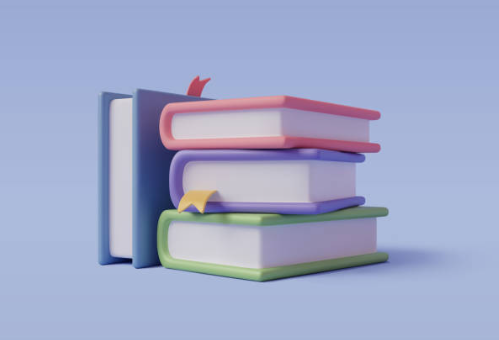Do Self Help Books Work?
This article discusses the reasons why people read these books, the symptoms of false hope syndrome, and the effectiveness of growth-oriented and problem-focused self-help books.

Selfpause Affirmation App
Download the app to get 1,000’s of affirmation meditations and everything you need to write, record and listen to your own.
Why people read self-help books

Self-help books are popular books with the goal of helping people improve their lives. They have been around for a long time, dating back to the 19th century. The first books focused on character building, with works by Dale Carnegie and others providing tips for becoming more likable. Since then, self-help books have expanded into topics ranging from achieving goals and losing weight to improving productivity and overcoming anxiety.
Some of the most popular self-help books are those that treat anxiety and depression, while others are helpful in treating alcoholism and schizophrenia. People who are struggling with these issues find that these books give them a sense of empowerment and control. However, it is essential to understand that these books shouldn’t be used as a substitute for professional help.
The first thing to understand is that most self-help books are not scientifically proven. They aren’t tested for effectiveness, and they are often advertised with exaggerated claims. This makes it difficult to evaluate the effectiveness of the recommendations. Another issue with self-help books is the fact that they are often poorly written and contain too many steps.
Another study has shown that self-help books are more popular with women than with men. According to Goodreads, three quarters of self-help book readers are female. In addition, the proportion of women reviewing self-help books was significantly higher than that of female readers in other genres.
Although self-help books often contain sound, research-backed principles, they aren’t effective if they’re not put into practice. For instance, Bergsma notes that self-help is much like therapy, and people must take action in order to benefit from the information.
Symptoms of false hope syndrome

There is a lot of controversy surrounding the subject of self help books. Some critics of this genre argue that they encourage false hope syndrome. Others point out that many books do not actually work and can have negative side effects. Others believe that some self help books lead to the development of addictions.
Whether you’re trying to quit smoking or improve your drawing skills, false hope syndrome can make your goals seem unattainable. You may over-promise your boss or yourself, or make New Year’s resolutions that you can’t keep. You might even miscalculate how long it will take to achieve your goal.
The concept of false hope syndrome is useful, but some critics say it is too simplistic. For example, research has shown that people who read self-help books have different personality traits than non-consumers of the same types of books. This suggests that people who read self-help books are more likely to develop depressive symptoms, which may lead to an increase in stress reactivity.
Efficacy of growth-oriented self-help books

Many of these books claim to be effective, but there are a number of problems with the methods used. For example, the vast majority of growth-oriented self-help books are not problem-oriented. Although they may have a positive effect on the readers, there is little empirical evidence that they are effective.
One study found that growth-oriented self-help books are more effective than problem-oriented books. The authors found that the top 57 psychology books were primarily growth-oriented, compared to problem-oriented titles. Self-help books that are best sellers usually focus on personal growth, relationship skills, coping skills, and identity formation. The popularity of these books is partly due to their general appeal, as they can benefit people from many different backgrounds. In addition, growth-oriented books are sold more than books that focus on specific problems.
The effectiveness of growth-oriented self-help books depends on how involved readers are in the process. It is important to note that if the reader is not actively participating in the process, the book will be useless. In addition, it is important to remember that the book is only as effective as the reader’s effort and insight.
While some self-help books are more effective than others, there is no evidence that they are ineffective in helping readers reach their goals. Many people do, however, benefit from reading them regularly. By doing so, they can gain a new perspective and inspire themselves to achieve their goals.
Indications of effectiveness of problem-focused self-help books

Problem-focused self-help books are popular among people who are struggling with specific issues. This is different from growth-oriented books, which are more general in their approach. Problem-focused books are empirically proven to be more effective. In fact, a meta-analysis of bibliotherapy shows that reading problem-focused books on depression may be as effective as group or individual therapy. Other studies have found similar benefits in people struggling with anxiety or alcohol abuse.
The findings of the study reveal that consumers of problem-focused self-help books have greater reactivity to stressful situations and exhibit a greater degree of depressive symptoms than non-consumers. Another finding suggests that growth-oriented self-help books may be more beneficial to some people than others.
A broader set of criteria can be used to determine whether a problem-focused self-help book is effective or not. For example, books written with a cognitive behavioral therapy orientation tend to be more effective than those focused on general self-help. However, books that claim to solve problems with “big-picture” insights are less likely to be effective.
Moreover, the effectiveness of self-help books depends on what advice is included in them. Often, they do not work, or do little. Other times, they have no effect at all. Nevertheless, the last point is more general and is related to the type of book and the advice that is offered.
Side effects of problem-focused self-help books

The use of problem-focused self-help books has been shown to have positive effects on depression and other emotional problems. These books can also be beneficial for general emotional disorders and marital conflicts. Some studies even suggest that unguided self-help books can prevent the development of depression in high-risk populations. However, some authors have questioned the efficacy of problem-focused self-help books.
One study suggested that problem-focused self-help book consumers have a higher reactivity to stressors than those who read growth-oriented self-help books. The difference in physiological markers of stress was substantial. The authors concluded that these results suggest a need for additional research.
Further studies are needed to determine which types of self-help books are most effective for reducing depression. These studies are not the only ones to study this relationship. In fact, a longitudinal study is needed to disentangle the relationship between problem-focused and growth-oriented self-help books. In addition, the authors suggest that future studies investigating problem-focused and growth-oriented self-books should measure the use of coping strategies. Including such measures in studies would help explain the observed associations between these two groups.
Our Top FAQ's
The effectiveness of self-help books in improving mental health and overall well-being varies. Some research has shown that self-help books can be helpful for certain individuals and can improve symptoms of certain mental health conditions, such as anxiety and depression. However, self-help books may not be as effective for more severe or complex mental health conditions, and they may not provide the same level of benefit as professional therapy or treatment. It’s important to keep in mind that self-help books should not be used as a replacement for professional treatment, but rather as a complementary resource.
Self-help books can provide some of the same benefits as therapy or other professional treatment, such as improving coping skills and helping individuals better understand and manage their emotions. However, they cannot replace the personalized, individualized care and support provided by a trained professional. If you are experiencing significant mental health challenges or are in crisis, it is important to seek help from a qualified professional.
People typically use self-help books in a variety of ways. Some may read them cover to cover, while others may only focus on certain chapters or sections that are most relevant to their needs. Some people may use self-help books as a supplement to therapy or other professional treatment, while others may use them as a standalone resource. The effectiveness of self-help books may be influenced by factors such as the individual’s motivation and commitment to using the book’s techniques and strategies, as well as the fit between the book’s content and the individual’s specific needs and goals.
There are some potential downsides or risks to using self-help books as a means of self-improvement. For example, if a self-help book promotes techniques or strategies that are not supported by scientific evidence or that may be harmful, it could potentially do more harm than good. Additionally, relying too heavily on self-help books and not seeking professional help when needed could prevent individuals from getting the support and treatment they need.
Choosing a self-help book that will be most helpful for you can be a challenging task, as there are many different books available on a wide range of topics. One way to choose a book that will be most helpful for you is to read reviews and ask for recommendations from friends, family, or healthcare professionals. It’s also important to consider the credibility of the author and the book’s publisher, and to be wary of books that make overly bold or unrealistic claims. Some best practices for using self-help books effectively include setting specific goals for what you hope to achieve through reading the book, being open-minded and willing to try new techniques and strategies, and being patient and consistent in your use of the book.
